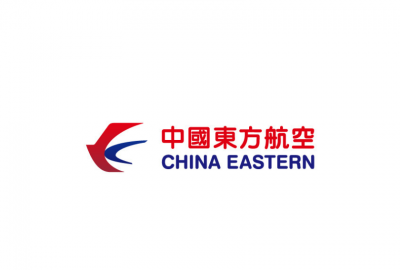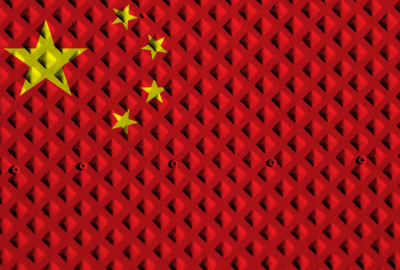Category: China Insights
In this Asia-Pacific Insight, luxury expert Emmanuel Sidem and Christophe Granier explore China's luxury market trends. From new purchasing behaviors and increased specialization to click and brick luxury evolution, they propose a fascinating big picture and analysis regarding what luxury will be about tomorrow. New definitions, new clients and new challenges, where is the industry going next?
In this Asia-Pacific Insight, China expert Eleonore William continues to explore the development of globalized Chinese Groups with some notes on Fosun. Originally an investment consulting business, Fosun has over the years turned into a multinational and diversified group now focusing on health and happiness.
In this Insight, Paul Clerc-Renaud and Christophe Granier attempt to sketch a post-trade war landscape. China-US relations are complex and many factors need to be taken into account. Yet, interestingly, whilst Washington fights, it seems that Beijing is on the way to collecting the benefits of his patient strategic efforts, both from an economic and strategic perspective.
In this Insight, Eléonore William analyzes Chinese Globalized groups by looking at the China Eastern airline company. Diversification of services, strengthening of international alliances, and development opportunities in a context of increased competition, this brief note gives a practical overview of a usually unexplored industry.
In this Insight, Hong Kong Poly University Professor and former Vice-President of Air France, and French Trade Advisor Henri Hie discusses recent developments pertaining to the aviation industry in Asia and China. From general trends to airline insights and Great Bay Area strategies, Henri Hie draws an interesting and precise big picture and sheds some expert lights on a usually unknown but highly competitive industry.
In this Asia-Pacific Insight, André Chieng analyses China-US relations from an economic and diplomatic perspective. While in the current trade war China could appear to be in a weak position, the debate is more subtle than it looks. "Chinese strategists have however understood that the timing is not favorable to them", Chieng write, and in the end, Beijing's policy mainly consists in "allowing Trump to claim victory and abandoning some ground to preserve the essential".
In this Asia-Pacific Insight, Bryan Mercurio and Stephen Nagy discuss US-China relations by looking at future trade deals between the two countries. "China and the US are likely to reach an agreement to end their trade war soon", they write, "but any deal reached between them will be superficial, difficult to enforce and out of step with the norms of the international trading system".
In this insight, Thales Country Director for Russia Remi Paul explores the interaction between Russia and the China-led Belt and Road Initiative (BRI). Whilst the BRI is usually discussed taking a South-East Asian or European perspective, Remi Paul points to the North and develops on a de facto marriage between Moscow and Beijing. Marrying the Bear and the Panda is an ambitious plan, he writes, but the stakes are crucial and the big picture speaks for itself.
In this insight, Sandrine Zerbib writes about the development of artificial intelligence (AI) in China. From ambitions to actual impact, she comments on the role of tech giants and considers potential evolutions in a variety of fields and industries. Think media and leisure, for instance, or financial services and health. At the end of the day, she writes, the best way to participate in this tremendous growth of artificial intelligence is to learn from the Chinese and use their applications in China and outside China, especially in areas where Chinese companies are already highly successful ...
In this Insight, M&A specialist Daniel de Blocq van Scheltinga comments on the development of the Greater Bay Area project. Although it has been around for some time, what the Greater Bay Area really is about remains unclair for many. although "it took a few years for the world to become familiar with the Belt and Road Initiative", the author writes, "it will not take as long for the world to be impressed by the Greater Bay Area as it witnesses the area's transformation into a vibrant, prosperous, and green world-class city cluster".
In this China Business Insight, Eleonore William writes on the China National Nuclear Corporation (CNNC) - i.e. the entity in charge of overseeing and implementing all aspects of China's civil and military nuclear programmes. Is the nuclear market dynamic enough for China? How is CNNC developing and with what ambitions? This insight gives you the big picture.
In this insight, Vivien Massot explores the Belt and Road Initiative (BRI) from the perspective of India. He explains that for a variety of strategic; political, infrastructural and transparency reasons, the initiative faces a certain reluctance from India. Now more than ever, Massot Concludes, India is still seeking to preserve its natural sphere of influence (South Asia, Indian Ocean) but does not have sufficient financial resources to be able to counter Chinese trade integration projects.
In this Asia-Pacific Insight, Fabien Pacory explores the impact and influence of Free Trade Zones in China's Belt and Road Initiative. Free Trade Zones have more than a role to play in Beijing's strategy, he explains. In various countries, these zones serve various purposes, starting with an economic laboratory role and a pro-reform role which eventually help making the initiative stronger and stronger. There is a genuine strategy here, Pacory explains. The question is: which one?
In this Insight, Fargo Group Managing Director and French External Trade Advisor Paul Clerc-Renaud analyzes the current technology landscape of China. Paul explores the issue through various lenses, starting with the idea that the microchip and semiconductors sector currently are China's greatest technological weakness. He considers the related strategic, market control and future development aspects of the issue, and he elaborates on those sectors in which China is at the forefront: Telecoms, ICT & Internet services or Fintechs, Artificial Intelligence and Quantum Computing. Not to forget new energies, transportation or aeronautics. He concludes, overall, on the idea that R&D and Education represent the nexus of the current technological war.
We recently interviewed Daniël de Blocq van Scheltinga, a Hong Kong-based M&A advisor and Circle Contributor who provided some personal insights on the Chinese M&A markets. As the first Western CEO to a Chinese State-Owned Enterprise (SOE), Daniël has a unique perspective on how large Chinese companies think and operate. Hence, his interview provides very exclusive food for thought on how to do business in China, on the reasons and consequences of current US-China relations, on China's technology ambitions, and more generally on the Belt and Road Initiative (BRI) and its long-term impacts.
In this China Business Insight, Eleonore William continues to explore and document the growth of globalized Chinese Groups, taking the case of Xiaomi. While Xiaomi is known for having put into place a "high technology accessible to all" business model, but the strategy developed by the group in order to diversify its activities, develop a robust user community and turn into an international company with a truly global reach is interesting for one major reason: it works.
In this insight, Paul Clerc-Renaud analyses the so-called Trade War which has opposed China and the United States since the arrival to power of President Trump. He comments on the various progress made by the Chinese over the past few years, provides a summary of the recent trade sanctions put into place by Washington and Beijing, and considers why the tensions have arisen. Technological progress, he concludes, is at the root of the problem, and chances are that Beijing's 'Made in China 2025' are the actual reason why the U.S. is so embarrassed with China's development.
In this China Insight, Daniel de Blocq van Scheltinga comments on the opening of the Hong Kong-Zhuhai-Macao Bridge. While not long ago the world thought that China was merely able to copy technology, he writes, the inauguration of the 'Bridge of Dreams' suggests that significant change has happened. Overall, the Hong Kong-Zhuhai-Macao Bridge is not just a bridge. "The HZMB is a clear symbol of the New China: The old days of copycats are clearly over; it is breaking new ground and setting new standards for the world in many aspects of its economic achievements".
Telecom talk, with Alain Lejeune (TLC Communications, BlackBerry Mobile Division): In this Chinese markets insight, Alain Lejeune explores past, current and future developments in China's Telecoms market. From the rise of a market to the development of a truly globalized telecommunication industry strategically supported under the "Made in China 2025" efforts, Mr Lejeune tells a fascinating industrial story built around innovation, forward-looking anticipation, daring business models and far-reaching investments. In case you wondered what global (and Chinese) telecoms are about, this insight is a must read. Would you like more business trends and tips from regional Asia-Pacific experts? Read our latest Asia-Pacific Insights!
In this Insight, China expert Christophe Granier continues his analysis of the maritimization policy of China. Having explored the development of a fisheries-related policy by Beijing in a previous contribution, he moves on to explore the remaining aspects of the country's sea industry. Whilst services ranging from luxury and passenger transportation to communication cables installation are likely to be the future of the maritime economy, more interesting aspects indeed deserve to be considered. All in all? Christophe Granier provides a surprising, challenging and fascinating overview of the Chinese ability to think ahead and plan.
In this China Markets Insight, Entrepreneur and ConchSociety CEO Bertrand Ternat provides his views on the Asian and Chinese luxury market. Fascinated by China and eager to understand how the Chinese markets work and how the Western culture, habits, and mindsets can fit, Bertrand has learned that the best way to fail is to try and sell without making any effort to understand and fit in the system. In contrast, the best way to do business in China is to step foot in those circles and to be recognized as being valuable by those in the circles. Asia and even more China are network-based countries, don't think this is something …
In this China business insight, Eleonore William from the France China Committee analyses the Tongwei Group's diversification approach, from aquaculture to solar energy. While the Group has historically been a giant in the marine food industry, it is progressively investing in new technologies and know-how, so at to become a leading player in China's growing solar power sector. For more, make sure to read our China business insights.
Ashley Galina Dudarenok is one of the key experts and opinion leaders on digital marketing strategy and social media in China. In this Asia-Pacific Insight, she explores the question of digital transformation in China, from technology developments to marketing strategy, she explains how she sees change happening. Ashley is very optimistic about digital developments and has lots to say about digital marketing developments, but her key take is very simple: "China is the future of digital technology". Read the interview for more.
In this Asia-Pacific Business Insight, Gilbert Réveillon, Christophe Granier and Paul Clerc-Renaud explore the idea that new technologies have the power to impact us in ways we have not yet considered... especially as far as China is concerned. As of today, China is at the forefront. China invests heavily in supporting the development of Blockchain and quantum computing know-how, and in the field, the Chinese BATXHJs (Baidu, Alibaba, Tencent, Xiaomi, Huawei, JD) are already competing with the American GAFAs (Google s, Apple, Facebook, Amazon) when it comes to technological domination… fighting for supremacy. The question, in other words, is not to figure out whether China is making progress. It is to …
In this Asia-Pacific Insight, Christophe Granier analyses the rapid development of China's maritime economy - China's maritimization - both in terms of size and in diversity. He notes that China's maritimization is moving in (at least) three ways. One is the country's complex but powerful fisheries industry. Another relates to maritime farming and the major investments in technological development China is putting in place to acquire leadership on the matter. The third relates to China's efforts towards developing a non-fisheries-related maritime industry. Overall, Granier concludes, China's maritime industry has a promising future.
In this Insight, business strategy adviser Philippe Bonnet explores the idea that Eurasia is shifting from an underutilized geographic notion into something much bigger. Looking at recent and forthcoming developments in the Asia-Pacific, he suggests that the Europe - China relationship needs to be significantly reconsidered, together with the way Westerners think about doing business with Asia (and China). The business equation is very different from one side of the continent to the other. In Europe, business with Asia is about threat mitigation. In Asia, in contrast, business is a matter of investment. As a result, a significant change in mindset is needed for business to become a win-win matter.
US - China Trade Insights: Antoine Martin and Professor Bryan Mercurio (The Chinese University of Hong Kong) discuss China - United States relations in light of recent trade developments. With the announcement of new tariffs against Chinese steel and Aluminum, President Trump has forced President Xi to react. This analysis of the'trade war' developments leads to the conclusion that the political game is changing. On the one hand, the U.S. is turning nationalistic and protectionist, even if it harms itself in the process. On the other, China is reversing the usual rhetoric and positioning itself as the god international citizen who plays by the rules. Keep reading for more.
In this Asia-Pacific financial insight, Antoine Martin comments on recent moves against Bitcoins, Initial Coin Offerings (ICOs) and crypto exchanges by China's financial authorities. From speculation controls to ambitious political projects, the relationship between China, Bitcoins and cryptocurrencies in general is complex. This Insight aims at bringing some clarity to the debate.
China - US Relations: Antoine Martin analyzes Mr Trump's TPP and Trade policy, arguing that the 'America Great Again' idea will sooner than later give China a significant leadership role
Asia-Pacific Insight: The steel industry is one of China's most significant industries, but it lives difficult times at the moment. In fact, steel overcapacity in China is not just a reality, it has become a source of diplomatic troubles. In this China insight, Antoine Martin comments on the Agreement reached by the United States and China on the matter. He concludes that little change is to be expected. Beijing has little margin of maneuver on the topic, hence overcapacity is likely to remain a burden in China-US relations.
Monetary Policy: Antoine Martin comments on recent monetary talks involving IMF Director Christine Lagarde and Central Bank Governor Kuroda regarding capital controls in China
Whether or not China should be considered as a market economy country is a polemical topic at the moment. On the one hand, Beijing claims that it has made significant efforts to open its economy to world markets since its accession to the WTO. On the other hand, the major competing countries such as the United States or the European Union complain that such effort are not significant enough and argue that China should not be considered a market economy. In this China business insight, Antoine Martin comments on recent EU and US talks regarding the issue.
































